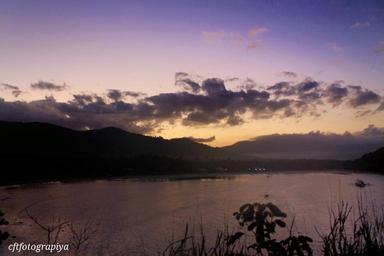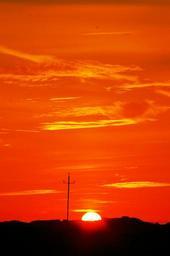Introduction
As the sun dips below the horizon, nature reveals its ethereal beauty. The stars shimmer against an inky canvas, inviting us to explore beyond our earthly existence. For campers and hikers, astronomy nights transform an ordinary outing into an extraordinary experience. This article serves as your ultimate guide, packed with valuable insights on stargazing while enjoying the great outdoors. From choosing the best camping tents to understanding celestial patterns, we’ll cover everything you need to know to make your next hiking or camping adventure truly unforgettable.
Astronomy Nights: Stargazing Tips for Campers and Hikers
Stargazing is an art that requires preparation and knowledge of both the cosmos and your outdoor surroundings. Whether you're nestled in a four-season tent or lounging under the open sky, here are some essential tips to enhance your astronomy nights experience.
Understanding Celestial Navigation
Navigating by the stars isn't just for ancient mariners; it's a skill that modern campers can also employ. Familiarize yourself with key constellations such as Orion, Ursa Major, and Cassiopeia. These star formations can serve as guides when orienting yourself at night.
Choosing the Right Location for Stargazing
Selecting a suitable spot is crucial for effective stargazing. Look for areas far from city lights—often termed "dark sky parks." The less light pollution you encounter, the clearer your view of celestial bodies will be.
Timing is Everything: Best Seasons for Stargazing
While you can enjoy stargazing year-round, certain times are more https://blogfreely.net/marachztel/photography-techniques-for-capturing-outdoor-landscapes favorable than others. Late spring through early autumn tends to offer clearer skies and milder weather conditions perfect for camping adventures.
Packing Essential Gear for Astronomy Nights
- Telescope or Binoculars: Enhance your viewing experience. Star Maps: Handy guides can help identify constellations. Red Flashlight: Preserves night vision while navigating. Comfortable Blankets or Sleeping Bags: Stay warm during chilly nights.
How Weather Affects Star Visibility
Weather conditions play a significant role in stargazing quality. Ensure you check local forecasts before heading out. Cloudy skies or rain can obstruct visibility—consider planning around these factors.
Camping Gear Insights for Astronomy Nights
When it comes to gear selection, not all camping equipment is created equal. Understanding what to bring is integral to maximizing your outdoor astronomy experience.
Best Camping Tents for Stargazers
Choosing between hot tents and four-season tents depends largely on the climate you’ll be facing:
| Tent Type | Benefits | Ideal Conditions | |-------------------|--------------------------------------------|--------------------------------| | Hot Tents | Excellent ventilation; cozy atmosphere | Mild weather | | Four-Season Tents | Robust against harsh elements; durable | Extreme weather |
Portable Camping Gear Essentials
Remember that lightweight gear is key when hiking. Consider items like portable stoves and compact sleeping bags that won't weigh you down but will provide comfort.


Camping Destinations Perfect for Astronomy Nights
Selecting a destination plays a critical role in ensuring memorable stargazing experiences.
Top National Parks for Stargazing Adventures
Big Bend National Park (Texas) Joshua Tree National Park (California) Death Valley National Park (California/Nevada)Each park offers unique landscapes paired with minimal light pollution—ideal settings for exploring constellations.
Local Flora and Fauna Considerations While Stargazing
Understanding local ecosystems enriches your overall outdoor experience. Be aware of wildlife that may be active during nighttime hours—raccoons and owls often take advantage of nocturnal activities!
Camping Tips & Outdoor Survival Skills During Astronomy Nights
Surviving outdoors encompasses more than just enjoying the stars above; it's also about being prepared.
Campfire Safety Protocols
Campfires provide warmth and light but require diligence:
- Keep fires small and manageable. Always have water nearby. Ensure fires are completely extinguished before sleeping.
First Aid Basics for Outdoor Adventures
In case of emergencies:
- Carry a first aid kit equipped with bandages, antiseptic wipes, pain relievers, etc. Familiarize yourself with basic first aid skills in case of injuries during your outdoor excursions.
Innovative Hot Tents & Camping Recommendations For Stargazers
Hot tents are becoming increasingly popular among campers who want comfort without sacrificing an excellent view of the night sky.
Glamping Experiences Under Starry Skies
For those who prefer a touch of luxury while enjoying nature's wonders, consider glamping options that come equipped with large windows designed specifically for stargazing!
Understanding Hiking Trails That Lead to Great Stargazing Spots
The journey often enhances our destination's value! Here’s how:
Best Hiking Trails Near Dark Sky Locations
Appalachian Trail - Offers numerous campsites ideal for stargazers. Pacific Crest Trail - Features vast expanses with minimal light interference.Explore these trails during moonless nights to get the best views!
Photography in Nature: Capturing Your Astronomy Nights Experience
What better way to remember those breathtaking views than through photographs?
Tips For Astrophotography While Camping
Use long exposure settings on your camera. A sturdy tripod is essential. Experiment with different angles—capture both foreground landscapes alongside celestial objects!FAQ Section
What equipment do I need for successful stargazing?
You'll need binoculars or a telescope, star maps, red flashlights, blankets or sleeping bags to keep warm while observing stars comfortably.
How do I choose the right campsite?
Look for parks designated as "dark sky parks" where light pollution is minimized—this enhances visibility dramatically!
Is it safe to hike at night?
Yes! Just ensure you're well-prepared with headlamps or flashlights and knowledge about local wildlife behavior during nighttime hours.
What are some family camping tips?
Involve kids in planning—the excitement builds anticipation! Prepare fun activities related to astronomy like star tracking games!
Can I camp while observing wildlife?
Absolutely! Just always maintain distance from any wild animals; they’re part of nature’s beauty!
li23/ol4/hr9hr9/##
Conclusion
With careful planning and respect towards both nature's wonders above us and around us on Earth—we can elevate our hiking or camping experiences into memorable astronomy nights filled with awe-inspiring sights! Follow these tips diligently—from selecting appropriate gear down through picking ideal destinations—and watch as each moment spent beneath twinkling stars transforms into lasting memories etched into both heart & soul alike! So gather up your friends or family members; it’s time we made new adventures happen together amidst this cosmos we call home!